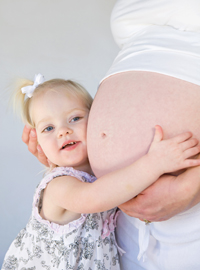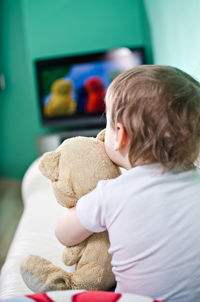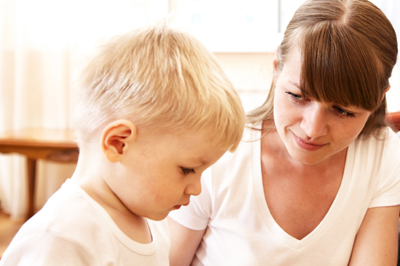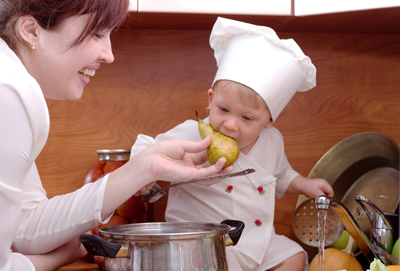29 Month Old Baby

You may have another baby by now or be considering whether to start trying for one. Two years between siblings is common, but often hard work. Nothing will cause your toddler to look so grown up than being placed next to their new baby brother or sister. Many parents, especially mothers, worry that they won’t love their new baby as much as their toddler. It just doesn’t seem possible to replicate all that love and closeness with another little person. But nature has been very clever in working this out and it’s remarkable just how quickly the new baby will weave its way into your heart and family. Try not to compare how you feel towards the new baby with your older child or children. Give yourself time and be patient.
If you don’t have a dual pram, then you may want to consider getting one. Your toddler will still need to rest their legs if you’re out and about, and carrying them while pushing the new baby is a challenge you won’t want to repeat more than once. Get into the habit of packing the diaper bag economically. Experienced parents know that most of the time, wipes and spare diapers are enough for short trips. Lugging around a heavy bag full of unnecessary clothing, wraps and paraphernalia will just weigh you down. Think smart, plan and save your energy – you’ll benefit from doing this.
Growth and Development
Although growth and development are highly individual and every child develops in their own unique way, some children have problems. Parents are often the first to suspect there could be an issue with their child’s development. Many factors can impact on the age at which children achieve their milestones and become competent at a range of skills. Prematurity, intra-uterine growth retardation, birth trauma, illness and other factors can all contribute.

At almost 2½ years of age your toddler should be able to use toys for their intended purpose, such as being able to cuddle a doll or a teddy, build blocks, push a toy car and so on. If they drop their toys a lot, or bang them together, or even throw them repeatedly, these behaviours can be known as a “red flags” and are reason enough to have your child assessed. Other concerns can be a lack of willingness to establish or maintain eye contact, not being able to say at least 50 words or not being able to join two or more words together. If you can’t understand a lot of what your toddler is saying and their language is still unclear, then a speech or overall assessment is warranted.
Other warning signs can relate to gross motor delays. If you observe your toddler can’t run yet, or still needs to hold on when going up a flight of stairs or can’t throw a ball, these too warrant checking. Your healthcare practitioner or GP will be able to refer your child for specialist assessment. Waiting lists can be lengthy, especially in the public system, so if you are at all concerned don’t delay in making initial contact with your healthcare professional. Generally, the earlier any form of child development therapy is commenced, the better the outcome and less risk of complications.
Play and Interaction
Try to involve all of your toddler’s senses in their play activities. Encourage them touch, feel, look and listen to the differences in the toys and objects they play with. Stimulating their development through play will be made easier if you have a variety of things for them to interact with. Get down on their level whenever you can and get involved in their play activities. Moving toys through pushing, pulling, stretching and opening will also help them to learn about controlling their body’s movements.

Talk with your 29 month old but don’t look for every conversation to be an education. Mothers, particularly, aim to teach their children when talking to them, but fathers aren’t as focused on this. This means that kids often view play with their dads or other males as being more fun and having a good time. This can prove to be a contentious issue for many couples.
Exploring is an important part of a toddler’s day. Their natural inquisitiveness will fuel them to look for what lies around the corner, what’s hidden in the cupboards and what’s lurking in dark spaces. For parents, this almost always means a new mess to clean up. Look for toys which involve general movement as well. Sitting down to do puzzles and drawing needs to be balanced with more physical activity. Play at this age is about balancing activity and rest, stimulation and quiet times.
What You Can Expect this Month
A little more independence as your toddler learns the world is just a fascinating place. After an initial warm up time, expect them to become everyone’s new best friend. Watch them as they charm other people around them and incorporate them into their conversations. You’ll notice those who are able to relate easily to children by their willingness to engage with your toddler. Their eye contact, tone of voice, interest in them will all be very obvious and you will silently give them the seal of approval.
Watch your own behaviours in surveillance yourself. Don’t be too trusting of people you don’t know, or even those you do. Your primary job is to keep your toddler safe and secure so they can have the best chance of growing up and meeting their potential. If you have a sense that a situation is not safe or your child is in danger, always trust this. Our sixth sense is a distillation of all our other senses combined and should never be ignored.
Food and Nutrition

Many toddlers refuse to eat fruit and vegetables at this age. They can detect a hidden vegetable even when it’s well camouflaged or they’re especially hungry. This causes parents to stress a lot and become worried that their child won’t grow and will become sick. Eating issues almost always resolve with time and patience. Try to be imaginative about how you cook, prepare and serve your toddler’s food. Avoid entering into food battles. As long as your toddler is eating food, not filling up on “junk” and they have the opportunity to eat, then this is as much as you can do. Avoid falling into the common trap of spoon feeding your toddler just so they have had something to eat. This does them no favours because it removes any effort they need to put into self-feeding or controlling their own intake.
In terms of nutritional content, frozen vegetables provide almost the same benefits as fresh. Cooking destroys many vitamins so if your toddler prefers to snack on washed, raw vegetables when you are preparing their meal, then let them. Serving bowls placed in the middle of the table so everyone can serve themselves is one very effective way of persuading a reluctant toddler to eat. Watch your own behaviour around food as well. Parents who have unresolved issues because of eating disorders can inadvertently “pass these on” to their children. An obsession with keeping your child clean, clearing away the meal before they have had a chance to eat, monitoring their intake in terms of variety and quantity can all be concerning. The first principle in changing any of our behaviours is acknowledging them. If you recognise that your own relationship with food is having an effect on your child, then seek help from your healthcare professional.
Keeping Your Toddler Healthy
If your toddler has a fever, don’t be in too much of a hurry to try and reduce it. The current recommendation from healthcare professionals is to treat the child, not the fever. So, if your toddler is still bright and alert, running around and drinking fluids, try not to be concerned. However, if they are refusing to drink, are sleepy, difficult to rouse, are sensitive to lights, have a rash or you are concerned, then have them checked by a doctor.
Babies and young children are not good at regulating their temperatures so variations from the normal range are not uncommon. Paracetamol, given in the correct dose for your child’s age and weight, will help to reduce their fever. But it is important that you find out why they have an elevated temperature and you are not just giving them Paracetamol without knowing why. Viral infections are the most common cause for fevers in young children and although antibiotics are not effective, it is still important that children who are unwell are assessed by a doctor.
General Tips
- Don’t stress about your toddler’s reluctance to eat.
- No child who has had access to food has ever starved. Your child will eat when they are hungry enough. Take them to your local clinic and have their weight, head circumference and length measured and plotted on their percentile (growth) charts.
- Check your child’s shoes still fit them and they aren’t due for the next size up.
- Toddlers aren’t good at explaining exactly how and where they are feeling uncomfortable. Shoes that pinch or compress their toes are not ideal for allowing their feet to grow and expand as they need to.
- Watch your language when you’re around your toddler.
- They will mimic you, especially those “special” words that can escape in moments when you’re stressed.
- Try to encourage your toddler to spend time with other children, both younger and older than themselves.
- Your toddler will learn what’s involved in relating to other people by spending time and socialising with them.

